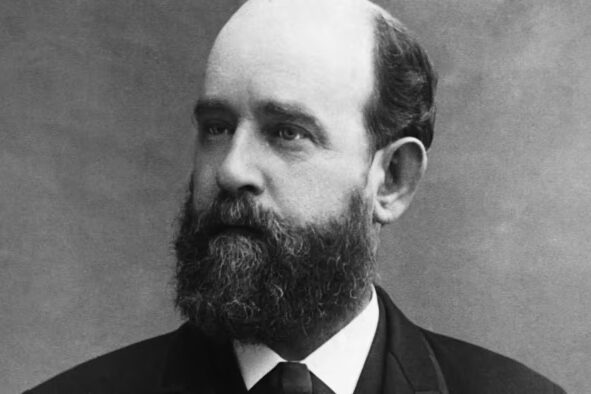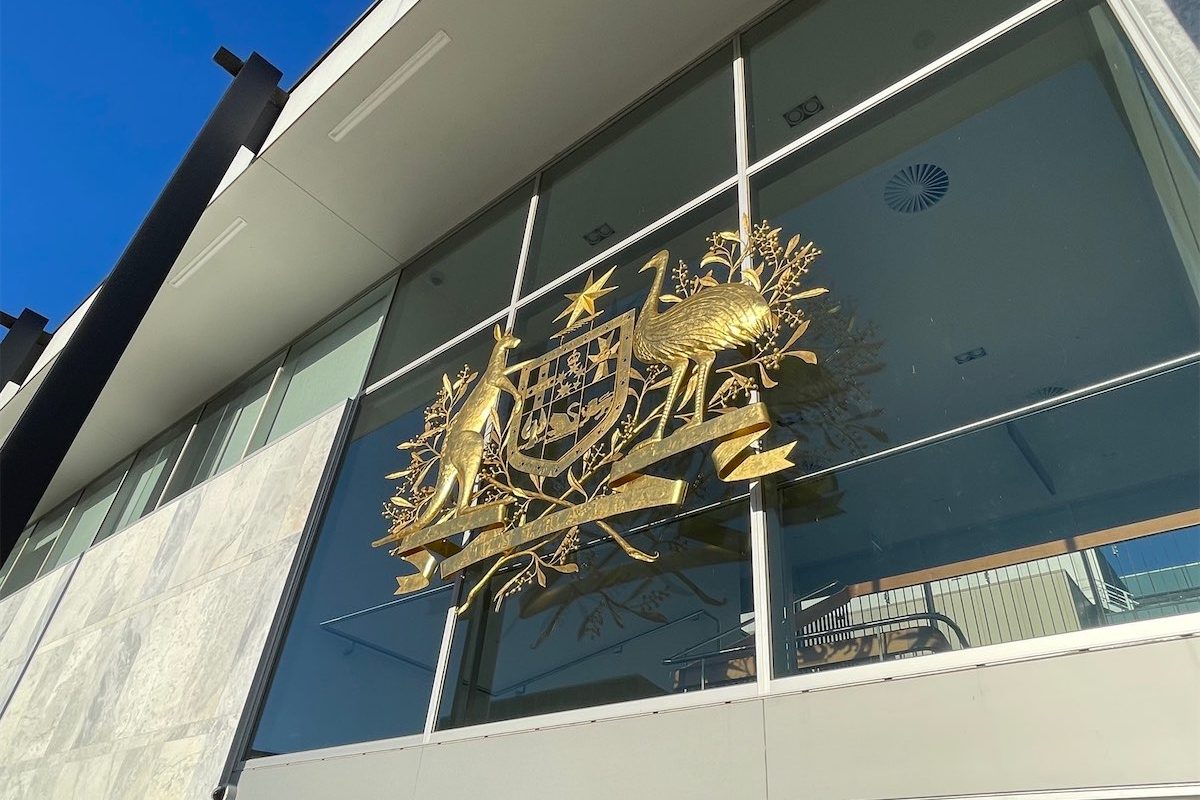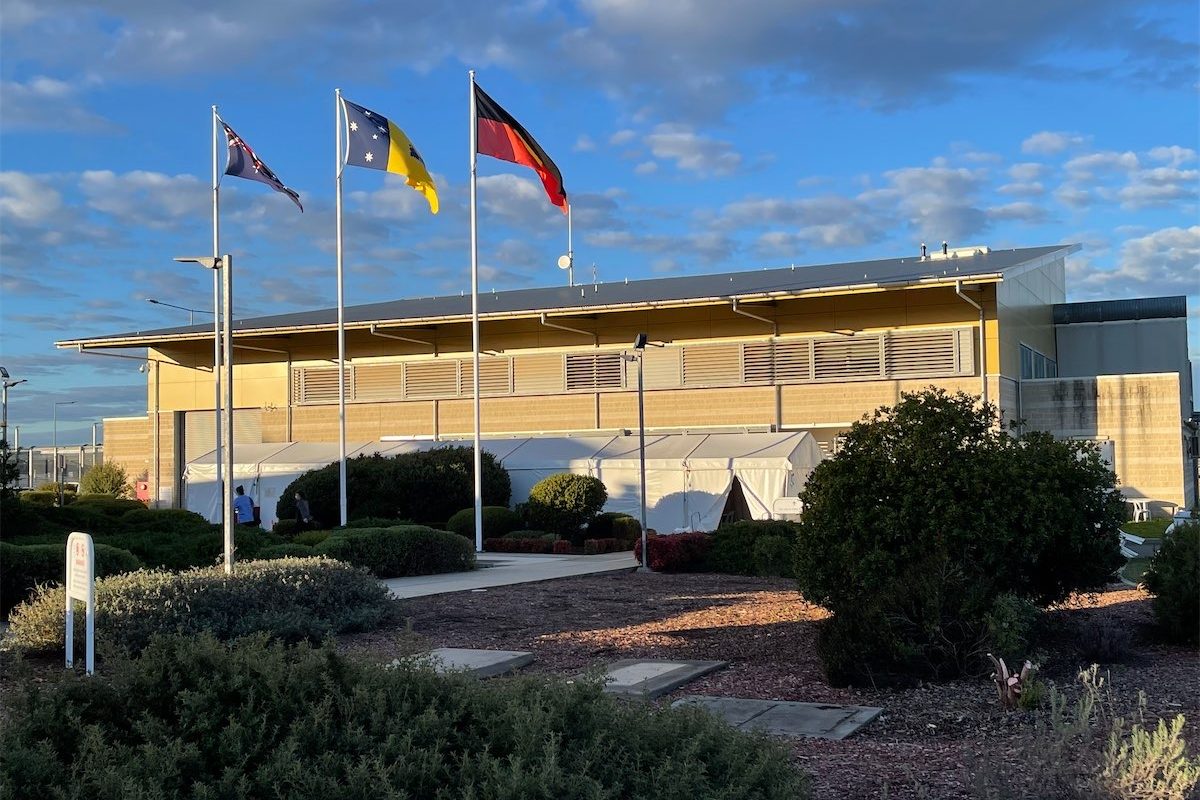
“There was nothing wrong with the economics of Henry George. But his very correct proposals have since been swept under the carpet, or cancelled, by self interest, greed and exploitation,” says letter writer TIM WALSHAW, of Watson.
Nichole Overall’s article on King O’Malley (CN October 31) was comprehensive, but failed to mention one of O’Malley’s most important crusades that had a direct effect on the creation and growth of the city of Canberra.
That was his strong belief in the writings of American economist Henry George, specifically his book Progress and Poverty.
Mr George said poverty in the modern competitive economy was not due to low wages or even Marxist exploitation, but due to high land prices feeding through to high rents.
This, according to Mr George, was the major cause of poverty. He went on to argue that if land prices were low, rents would be low, and poverty would be greatly reduced, even eliminated.
This belief was very popular at the time, and there was even a Henry George Party.
As O’Malley was responsible for the creation of Canberra, he made sure that the city was set up along the lines of Henry George’s beliefs. There would be no freehold land, only leasehold. Land would be taxed on land value, not the value of the building on it. And, above all, land would be provided to all-comers, virtually free.
This latter provision went into abeyance in Canberra in the early ’60s, and land has increased in value at an accelerating rate ever since.
If O’Malley was alive today, he would force the government to provide low-cost land to all who wished to build a house.
House prices would fall, yes fall, and rents and mortgages would be a minor part of every households’ budgets. Poverty would be reduced. There was nothing wrong with the economics of Henry George. But his very correct proposals have since been swept under the carpet, or cancelled, by self interest, greed and exploitation.
Tim Walshaw, Watson
They gave us heroes, we deny them rights
Armistice Day, more commonly known as Remembrance Day, is celebrated as it has been every year since 1918, on November 11.
It signifies the cessation of hostilities in World War I and typically incorporates a two-minute silence as a mark of respect for those who fought and those who died in defence of freedom and democracy.
Eighty-two Norfolk Island men (representing two thirds of the then adult male population) and two women, enlisted in the war. This is not only thought to be the highest enlistment per capita of any Australian jurisdiction, but is also widely accepted as the highest of any country of the British Empire.
Of the 82 men, 17 served at Gallipoli, four of whom landed on April 25, 2015, Anzac Day. Three were killed in action.
How ironic it is then that the Australian community that contributed among the highest, if not the highest, per capita number of residents to the war effort, namely Norfolk Island, is denied even the most basic democratic rights and is governed by faceless public servants and politicians living in Canberra, 2000 kilometres away.
I find our treatment of the residents of Norfolk Island deeply shameful. I fear, however, that I am virtually alone.
Jon Stanhope, via email
Little wonder Barr jumped at Parton for Speaker
Once again, I find myself in furious agreement with columnist Michael Moore (Right turn: can Castley shake off conservatives? CN November 7).
Michael makes the undeniable observation that Mark Parton again demonstrated his political credentials by garnering more primary votes in the Legislative Assembly elections than any candidate other than Andrew Barr.
Despite this, Parton has little to no support in his party room, demonstrated by his inability to gain the support necessary to win even the deputy’s position.
Little wonder that Barr jumped at the opportunity of nominating Parton as the Speaker.
He has a proven track record of impartiality as Deputy Speaker and removing Parton from a position on the opposition front bench, his undoubted ability as a retail politician is effectively negated making the real winner Chief Minister Barr.
Also, as alluded to by Mr Moore, it will be interesting to see whether Parton continues as the presiding officer, or will pressure be applied to make him leader, after the incumbents almost certainly fail to achieve any traction.
Whatever happens, it is guaranteed to be an “interesting” four years on London Circuit.
Ian De Landelles, Murrays Beach, NSW
So few capable candidates on offer
The problem with voting for candidates with a respectable curriculum vitae – who have “worked in industry at a senior executive level” and who understand “financial and technical issues and have developed strategic plans for new situations” (Letters, CN October 31) – is that very few such candidates were on offer.
It used to be that any self-respecting candidate would not put him/herself forward without relevant credentials, such as at least having been president of the local P&C association. Alas, this is no more.
If I were assessing the applications from the most recent group of candidates for the job of MLA, most would not have made it to the interview stage.
Karina Morris, Weetangera
Let’s adopt the one, overall voting system
“In Canberra we are lucky to have amongst the fairest of them all.” I think columnist Michael Moore (“Why voters should be grateful for Hare-Clark”, CN October 31) is a bit overboard with that statement.
That said, his article was reasonably fair, although he fails to mention that the Hare-Clark system favours the larger parties, and smaller parties and independents have found it very difficult to get a foot in the door. This has been proven time and time again within Tasmania and the ACT.
The preferential voting system in Australia requires voters to rank candidates in order of preference, ensuring that the elected candidate has majority support. This system reduces vote wastage by redistributing preferences if no candidate initially gains more than 50 per cent of the primary vote.
The Hare-Clark system, used in Tasmania and the ACT, is a form of proportional representation for multi-member electorates. It can lead to complicated counting processes and, sometimes, results in fragmented representation, where forming stable governments may be challenging.
It would be better for Australia and the states and territories to adopt the one, overall voting system, such as the preferential voting model, to maintain a fairer representation of the people and save confusion amongst the electorates.
Errol Good, Macgregor
Appoint ministers from outside the Assembly
The Hare-Clark system of voting is arguably the best available method for eliminating disenfranchisement.
A five-member electorate base ensures that more than 85 per cent of the voters have an opportunity to be represented by a candidate of their choosing.
The disenfranchisement problem is not entirely overcome by Hare-Clark. Once representatives have been determined, the elected representatives then set about trying to establish a dictatorship. When this happens, the representatives of as much as 50 per cent of the voters end up being the opposition.
In practical terms, they are a waste of space in the legislative chamber because the dictatorship determines what will happen irrespective of the usually childish debate which takes place on issues.
A simple solution is to ban elected representatives from appointment to additional positions such as ministerial portfolios.
There are arguably many more competent people outside the elected legislative body that are ever likely to be found pre-selected by major contenders for the dictatorship.
In the absence of the opportunity for “better jobs”, the elected representatives could focus as a whole on the contributions made by experts chosen from outside.
The adversarial performance we have learned to accept as normal might be replaced by a consultative approach to government in which adversarial behaviour was the exception instead of the norm.
Lawrie Nock, via email
Falling tree branches, but no-one cares
I live in Forrest with an avenue of oak trees outside. From time to time a bow of a tree falls as happened recently. Fortunately it fell on the nature strip and no-one was involved. On another occasion, a tree fell across the road just missing a bus.
We have had branches overhanging our roof for at least two years and despite several Fix My Street requests the danger is still there. On the last occasion the response was basically: “We know about this, don’t call us, we’ll call you”.
I questioned one of the workers removing the fallen tree and he indicated that equipment to access this dangerous branch is not available. So what do we do? Wait for the next storm and have the tree crashing through the roof? Apart from this discussion I have had no communication from the department.
Alan Shroot, Forrest
50dB in the bedroom, come to dinner and hear it
Open letter to the chief minister,
Last night we had 50dB of crowd noise from the Assembly Pub beer garden in our bedroom from midnight to 1am.
This morning I went on to the Access Canberra website to lodge a noise complaint only to be advised that Access Canberra has no jurisdiction in this matter of crowd noise and to refer my complaint to the ACT police.
Minister, do you really want me to contact the police every time crowd noise from the Assembly Pub hits 70 to 80 dB?
This would be a minimum of three times a week. Do you really have that many police?
Why doesn’t your government regulate crowd noise as in all other jurisdictions?
This issue has dragged on for many years. If you are having difficulty grasping our problem, could I extend an invitation to dinner at our apartment next weekend. My wife is a wonderful Chinese cook.
Terry Oldfield, Braddon
Lesson for people obsessed with material wealth
In his Kindness column, Antonio Di Dio (CN, November 7) wrote of Fred, who “reckons that he’s still not got around to make the pile that he could have with his amazing skills, and instead spent decades doing what he loved and people needed”.
This could, and should, be an object lesson for people who are obsessed with material wealth, be it property, possessions, shares or money in the bank.
A timely example of the obsession with money is Elon Musk. The world’s richest person was effectively buying votes for Donald Trump in a $1 million-a-day voter sweepstakes. Mr Musk is nobody’s fool: the only feasible reason for this barely legal (in Pennsylvania, at least) stunt was that the Trump regime would enable Musk to make even more money. Neither Mr Musk, nor Mr Trump seems capable of human kindness.
This irrational greed and cruelty are what could be facing the world’s largest economy and the world’s most powerful military that is armed with thousands of nuclear warheads.
Dr Douglas Mackenzie, Deakin
Attack on progressive independents begins
Recently, the federal deputy Liberal leader Sussan Ley, erstwhile woo-er of women back to the Liberal Party, publicised around the country the party’s planned “fear and loathing” campaign against eight federal teal MPs.
The misleading claims and graphics about these progressive female politicians suggest that past tactics of the party’s “dirty tricks” ally, Advance, influenced this campaign’s design and launch.
Ley’s brash and simplistic attack template might well end up being adopted by the beleaguered ACT Liberals, to criticise the efforts and achievements of Senator David Pocock, and to talk up the conservative Senate candidate they have preselected for the top position on their ticket.
If so, the local Liberals, like their national colleagues, will again be insulting the intelligence of ACT voters, whose interest in politics and good policy has helped them discard shallow and deliberately misleading politicking in the past.
Sue Dyer, Downer
Why no Australian flag at hospital?
I sent this to ACT Health via social media, but I’m not holding my breath for a reply as they never answer.
“Why is there only an Aboriginal and a Torres Strait Islanders’ flag near the emergency sign at Canberra Hospital? Why no Australian flag? Is this act one more of the obliteration of things British this woke government seeks? Canberrans should express their outrage.
Vivien Munoz, Holt
Who can be trusted?
In a world of spin and confusion, there’s never been a more important time to support independent journalism in Canberra.
If you trust our work online and want to enforce the power of independent voices, I invite you to make a small contribution.
Every dollar of support is invested back into our journalism to help keep citynews.com.au strong and free.
Thank you,
Ian Meikle, editor









Leave a Reply